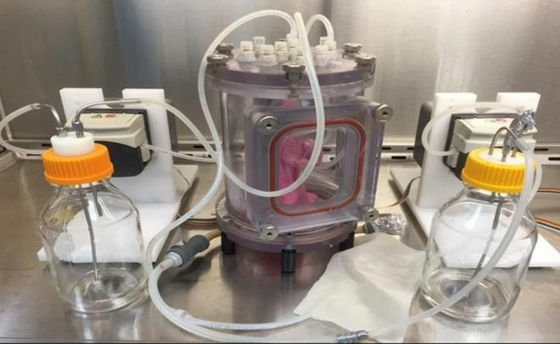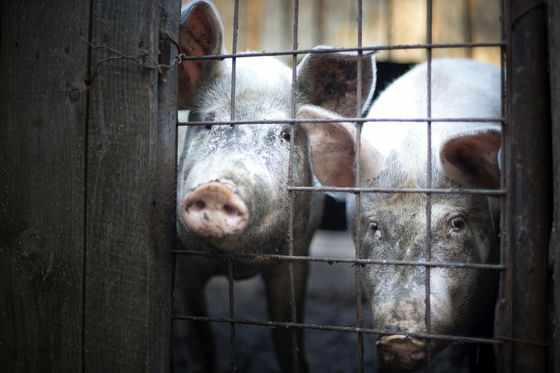Succeeded in experiment of transplanting 'bioengineering lung' cultured in bioreactor to living body

When an organ does not function due to a disease or an accident, it may be replaced with another person's healthy organ by organ transplantation to restore function. However, organ transplantation can not be performed unless a donor that provides an organ appears, and burden on patients is increased by immunity rejection , organ transplantation technology has many problems. Meanwhile, it has been reported that culturing cells collected from healthy pigs in laboratory equipment to make artificial lungs and succeeded in experiments of living transplantation.
We Can Now Successfully Transplant Lab-Grown Lungs
https://futurism.com/lab-grown-lungs-transplant/
Engineered pig lung transplant 'a success' - BBC News
https://www.bbc.co.uk/news/science-environment-45046674
A research team at the University of Texas Medical School conducted experiments in which cells taken from pig lungs were cultured in a large incubator called a bioreactor, grown as organs, and transplanted. The research team first removed all cells and blood from pig lungs using a mixture of sugar and detergent. By removing all of the cells and blood, "scaffolds" of only the skeleton composed of proteins remains.
Next, this scaffold is placed in a bioreactor filled with liquid prepared by mixing various nutrients, and cells collected from the recipient pig are adhered to the scaffold and cultured for 30 days, whereby "bioengineering lung" I succeeded in making it. Then we transplanted the new bioengineered lungs to the recipient pig and tested whether they will become established or not.

Then, blood vessels of lungs cooperated with pig within 2 weeks after transplantation, blood network was beginning to be established. I continued observation for about two months, but there were no signs that the recipient's pig's immune system would be rejecting the new lungs. In addition, microorganisms that naturally exist in healthy lungs have also been discovered. The research team conducted experiments with 4 pigs, but all of them reported that the transplant was successful. However, it is still not enough to evaluate the oxygen supply capacity of the bioengineered lungs, and the research team says that they do not know whether the lung has matured well in 2 months.

Professor Joan Nichols of the University of Texas Medical School who was involved in the study said, "If we can apply this technology to humans, we do not have to wait until the lungs are provided by the donor and immunity to suppress rejection It can be expected that consumption of inhibitors is no longer necessary. " Also, in order to establish bioengineered pulmonary culture technology, Professor Nichols said that it is necessary to improve the bioreactor so that organizational development can be supported appropriately.
Related Posts:
in Science, Posted by log1i_yk







